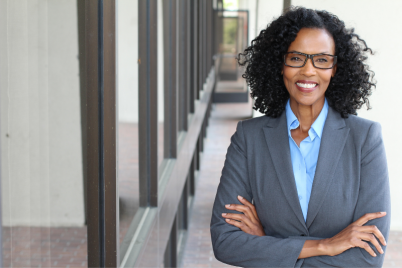From a different perspective, the good/evil, winner/loser duality personifies survival-of-the-fittest is useful in a physically hostile world. Unfortunately, we continue to play win/lose even when our physical selves are not in danger.
BY MICHAEL F. BROOM, Ph.D., Organization Development Psychologist
The pleasures of fall colors in Maine, a sunset in the Caribbean, or a waterfall veiling into the Columbia River are experiences we prize as different from our everyday life.
We go to workshops and universities to learn from those who know things and skills different from what we know. Viva la difference! Differences are sources of beauty, delight, and learning.
Then there are the differences that give rise to the mutilations of poverty, hunger, racism, sexism, and war. They are at the root of team and family dysfunctions, and they push us to avoid conversations about race, politics, and religion.
These are the differences where our socialization tells us what is right and wrong, good and bad. This use of differences is ancient, and it is at the core of the book of Genesis that serves Christians, Jews, and Muslims alike.
God tells Adam and Eve they may eat of the tree of life as much as they like; however, do not partake of the fruit of the tree of knowledge of good and evil. It wasn’t so much their disobedience to God that got them kicked out of paradise. It was having gained the ability to distinguish differences labeled good and evil.
God told us not to go there. She thought that should be her purview. We disobeyed.
From a different perspective, the good/evil, winner/loser duality personifies survival-of-the-fittest is useful in a physically hostile world. You’re lost and hungry in the woods, and so is a small bear. One of you will eat, and the other will be eaten. Win/lose makes sense here.
Unfortunately, we continue to play win/lose even when our physical selves are not in danger. We play win/lose when only our egos — our sense of identity or self-esteem — seem threatened. We will defend and protect them with vigor!
We feel that threat when we perceive ourselves potentially on the losing side of some difference important to our egos. A girlfriend once offered the odd notion that I’d done something stupid. I fought with her, whom I dearly loved, for an hour about it.
In my mind, being smart had carried me to success through three decades of seeing myself as socially retarded. In my mind, she had placed me on the wrong side of the smart/dumb equation. Defending myself was imperative to avoid thinking poorly of myself rather than deal with the social incompetence I was demonstrating.
We’ve been socialized on which side is good and which is bad across various differences: right/wrong, high/low, fast/slow, top/bottom, more/less, smart/dumb. We know which wins and which loses without knowing the application. There are also the distinctions of white/black, male/female, and many others which continue to bedevil use.
With these differences, we play win/lose with our husbands, wives, children, parents, and friends. At work, we may use them in caustic power struggles or to subdue ourselves into conformity from wanting to avoid conflict — such a misuse of differences.
Many of us pride ourselves on our appreciation of differences and generously applaud our open-mindedness, curiosity, and willingness to learn. All that goes out the window if we have attached our ego to be on the right side of some difference. What are the issues where your open-mindedness disappears?
When we do so, we toss away our ability to learn—the fundamental value of differences. It bears repeating — learning is the fundamental value of differences. I dreamed I was in a roomful of clones of myself. It was like I was in a learning desert.
Everything those clones knew, I already knew. I was bored out of my gourd! Time to wake up.
However, I can learn from you (or anyone else) because you differ from me. But I can learn from you only when I haven’t put my dear little ego into the equation.
I’m older and wiser now and can see my ego for what it is: something I have and must manage rather than it managing me. I only use my doctorate on rare occasions to prove to myself and the world how smart I am.
As for being dumb, only yesterday I couldn’t figure out where the plate of leftovers I thought I’d put in the microwave had disappeared to. I finally found it in the toaster oven. Had a good laugh at myself.
With ego well in hand, I would love to chat with a staunch conservative, Mr. Trump, or a member of the KKK. They are so different from me; I know there is something I can learn from them.
When I am curious about, interested in, and appreciative of someone, lo-and-behold, more often than not, they want to listen to me in return. When my ego wants me to judge, I deliberately and intentionally choose to be curious, interested, and appreciative, none of which requires my agreement. When I do, I amaze and gratify myself with the results!
Where have you been misusing differences? If you want to know, look back at the moments when anxiety, frustration, fear, or anger gripped you. You felt it in your belly, maybe, your chest, shoulders, or your jaw. Those are your threat responses, and unless you were physically in danger, that was your ego in defense mode.
You’ve read this and now are conscious of your ego and how you misuse differences. With that awareness, you’ve afforded yourself the opportunity to consciously use differences for their fundamental value—they’re the only source of learning we have. Let’s spread the word!
 Michael F. Broom, Ph.D. is the founder and CEO of the Center for Human Systems. Check him out on his website at www.CHumanS.com. Or email him at michael@chumans.com if you have questions about effectively leading or managing change.
Michael F. Broom, Ph.D. is the founder and CEO of the Center for Human Systems. Check him out on his website at www.CHumanS.com. Or email him at michael@chumans.com if you have questions about effectively leading or managing change.








